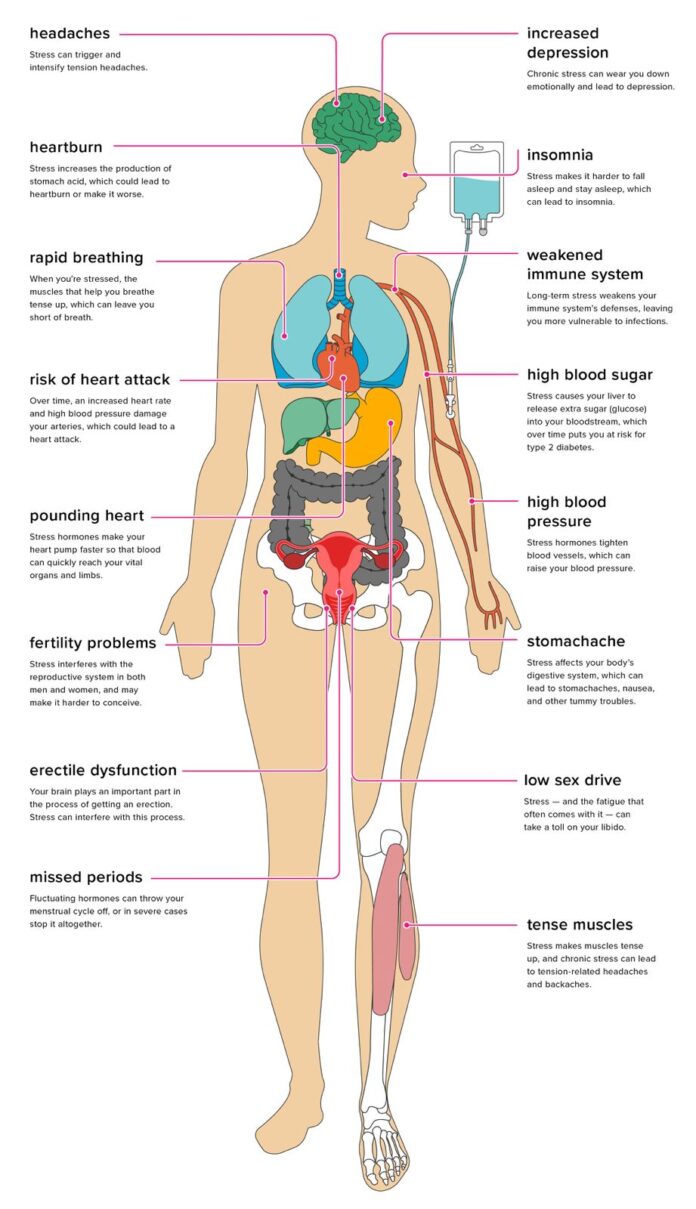In an article for the World Economic Forum, Michelle Meineke, Senior Writer, delves into the profound connection between mental and physical health, emphasising the critical need to care for both as integrated entities. Mental health issues are pervasive, affecting half of the world’s population at some point in their lives.
Dr Ruma Bhargava, the World Economic Forum’s Global Health Executive, underscores the importance of understanding this link, especially in light of Mental Health Awareness Month.
Stress and anxiety, common experiences for many, manifest not only in mental symptoms but also in physical sensations.
Dr Bhargava explains that stress affects every organ in our bodies, underscoring the interconnectedness of our mental and physical states. Historical and contemporary perspectives affirm this unity, urging us to recognise and harness it for our well-being.
The impact of mental health extends beyond individuals, influencing societal and economic landscapes.
The COVID-19 pandemic and climate change exacerbate stressors, highlighting the urgency of addressing mental health on a global scale. Dr. Bhargava emphasises the necessity of de stigmatising mental health, particularly in workplaces, where open communication can foster well-being and productivity.
To cultivate balance and resilience, Dr Bhargava offers practical advice, advocating for healthy eating, screen time reduction, and immersion in nature. These lifestyle adjustments, coupled with nurturing relationships, empower individuals to optimize their mental and physical health.
By embracing the interconnectedness of mind and body, and adopting holistic approaches to well-being, individuals can navigate life’s challenges with greater resilience and vitality. Meineke’s article illuminates the path towards a happier, healthier future, underscoring the profound impact of holistic well-being on individual and societal flourishing.
Original Article: World Economic Forum


